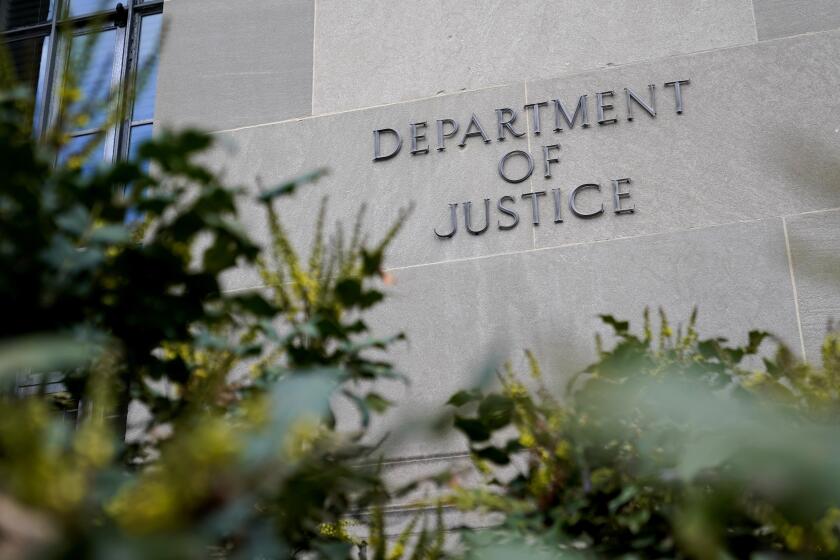Judge halts ban on syringe programs as El Dorado County legal battle continues

El Dorado County cannot enforce its ban on programs that hand out clean syringes as a legal battle continues between the county and the California Department of Public Health, a Superior Court judge has ruled.
Judge Gary S. Slossberg granted a preliminary injunction to prevent El Dorado County from enforcing an ordinance that makes it unlawful to operate syringe programs in its unincorporated areas.
The judge said he was not weighing in on the heated arguments for or against syringe programs, which provide sterile needles to people who use drugs, but whether the Department of Public Health had a “reasonable probability” of prevailing in its argument that the county ordinance clashes with state law.
Friday’s decision does not end the courtroom dispute over whether the ban passed by the El Dorado County Board of Supervisors was preempted by state law, as public health officials have argued, or opposing claims by county officials that the syringe program was improperly approved by the state. Slossberg said Friday that the preliminary injunction is meant to remain in place pending a later trial.
Giving clean syringes to people who inject drugs has been found to curb the spread of disease. But syringe programs are being banned in many California communities. The state is fighting back.
The Department of Public Health filed suit against El Dorado County and its county seat of Placerville this year contending that their bans on syringe programs defied the state health and safety code.
The state health department first authorized the nonprofit Sierra Harm Reduction Coalition to operate a syringe program in the county four years ago. State officials have long endorsed such programs as a proven way to prevent HIV and hepatitis C from running rampant as people share contaminated syringes.
California law gives the public health agency the power to approve syringe programs anywhere that deadly or disabling infections might spread through used needles, “notwithstanding any other law.”
Local bans on syringe programs have nonetheless sprung up across California as city and county officials argue that handing out free syringes does more harm than good. El Dorado County leaders passed their rule in December, which was followed in February by a similar ordinance in Placerville.
The lawsuit lodged by the California Department of Public Health drew objections from El Dorado County leaders: Earlier this year, Dist. Atty. Vern Pierson called it “madness” and argued that California officials were “seeking to impose the normalization of hardcore drug use.”
In a cross-complaint filed against the Department of Public Health, the county said that the syringe program approved by the state had caused “profound nuisance and public safety impacts,” including a “drastic increase in discarded needles,” and that overdoses had risen since it started.
Five people were arrested this week in Los Angeles over an alleged scheme to bilk the Medicare program of more than $15 million using ‘sham hospices.’
The county said in a legal filing that since the ban went into effect, “there has been a reduction of syringe waste, decreased incidents of public nuisance, and a resulting reduction of the burdens on law enforcement.”
It also accused the public health department of failing to follow state requirements when it approved the syringe program.
The judge did not weigh in on the cross-complaint lodged by El Dorado County at the Friday hearing. In a court filing, California officials said studies show that syringe programs provide important resources for needle disposal and play a crucial role in preventing overdoses. They credited the Sierra Harm Reduction Coalition with handing out thousands of boxes of Narcan, a brand of naloxone, a medication that reverses the effects of an opioid overdose.
The Department of Public Health argued in a legal filing that stopping the syringe program would be likely to ramp up HIV and hepatitis C infections among people who use drugs, increasing state costs for their care; lead to more deaths from drug overdoses; and reduce access to options for syringe disposal, among other harmful effects.
Because of the bans, “our most vulnerable, stigmatized, and marginalized community members are actively being denied lifesaving interventions,” Sierra Harm Reduction Coalition interim executive director Shilo Jama said in a court filing.
Slossberg said that although he was preventing the El Dorado County ordinance from being enforced, the county might have other mechanisms to address nuisance issues that were not addressed by the decision.
Pierson, the district attorney, said in a statement Friday that “we will propose narrowing the ordinance” in response to comments made by the judge.
The California Department of Public Health said in a statement that it was “pleased with the court’s decision that upholds that state’s role in protecting the public’s health while this case proceeds.”
The Friday ruling applies only to the ordinance passed by El Dorado County. Attorney Mona Ebrahimi, who represents the city of Placerville, said a hearing involving the city had been postponed.
More to Read
Sign up for Essential California
The most important California stories and recommendations in your inbox every morning.
You may occasionally receive promotional content from the Los Angeles Times.













